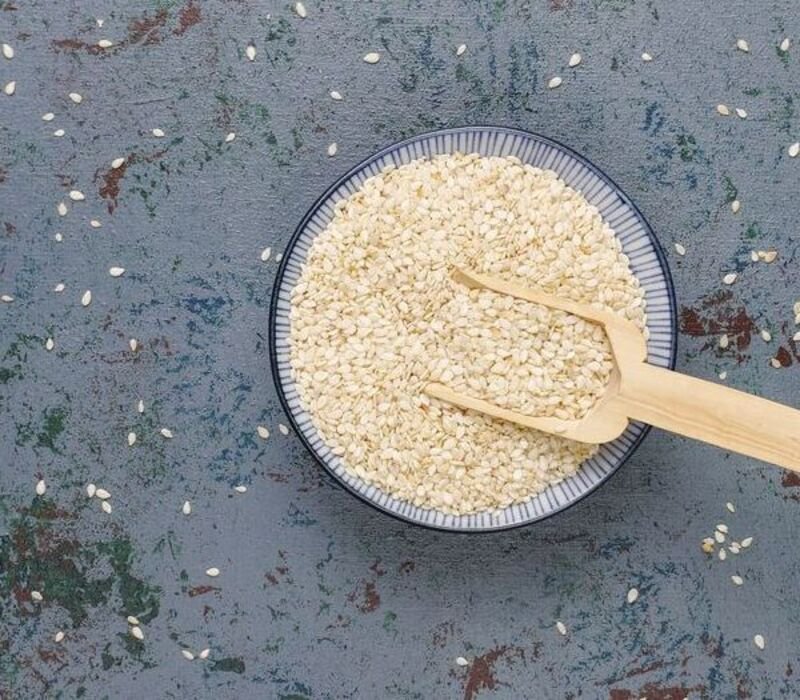Hey Foodie! Is Bulgur Wheat Gluten Free? If you’re wondering whether bulgur wheat contains gluten or not, it’s important to understand what gluten is and how it may impact you if you have a particular dietary requirement. In this article, I’ll explain the gluten-free status of bulgur.
Page Contents
What is Gluten?
Wheat, barley, and rye are just a few of the grains that contain the protein known as gluten. It makes dough rise when cooked and lends it its flexibility. While most people can safely consume gluten, those who have certain medical disorders, such as celiac disease, non-celiac gluten sensitivity, or wheat allergy, may experience difficulties.
Is Bulgur Wheat Gluten Free?
Bulgur wheat does not contain gluten. Bulgur wheat has gluten, like all goods made from wheat. The protein gluten, which is present in wheat, barley, and rye, can be problematic for those who suffer from gluten-related illnesses.
Basically,
Bulgur wheat can be a beneficial addition to your diet if you are not gluten sensitive. It may be used in several cuisines and is a healthy source of fiber, protein, and vitamins.
Calorie Content and Nutritional Information for Bulgur Wheat
Whole wheat grain known as bulgur is a staple in Middle Eastern and Mediterranean cooking. It has a good amount of fiber, protein, and B vitamins, among other important components. The nutritional information for 1 cup (182 grams) of cooked bulgur wheat is as follows:
| Calories | 151 |
| Protein | 5.6g |
| Fat | 0.4g |
| Carbohydrates | 33.8g |
| Fiber | 8.2g |
| Sugar | 0.2g |
| Calcium | 15mg |
| Iron | 1.3mg |
How to Prepare Dishes with Bulgur Wheat Gluten Free
Bulgur wheat is a flexible component that may be utilized in both savory and sweet recipes. Here are some recipes that incorporate bulgur wheat:
Salad Tabouli:
The major component of this traditional Middle Eastern salad is bulgur wheat. For an energizing and nourishing salad, just combine cooked bulgur wheat with chopped tomatoes, cucumber, parsley, mint, lemon juice, and olive oil.
Vegetarian Burgers:
In recipes for vegetable burgers, bulgur wheat can be used as a binding ingredient. Cooked bulgur wheat should be combined with mashed beans, grated veggies, and spices before being formed into patties and fried on a grill or in a skillet.
Delectable Delights:
Bulgur wheat can also be utilized in sweet dishes. Cooked bulgur wheat can be used as a base for a fruit crumble or cake, or it can be mixed with milk, sugar, and spices to produce a pudding.
Potential Health Advantages of Bulgur Wheat Gluten Free
Bulgur wheat is a filling whole grain that may offer several health advantages when used in a balanced diet. The following are a few potential health advantages of eating bulgur wheat:
A Lot of Fiber:
Dietary fiber, which can improve digestive health, encourage regularity, and lower the risk of chronic illnesses including heart disease, diabetes, and some malignancies, is abundant in bulgur wheat.
Bulgur Wheat Gluten Free Rich in Protein:
This wheat is a great option for vegetarians and vegans who may struggle to acquire enough protein in their diets because it is a strong source of plant-based protein.
Bulgur Wheat Gluten Free Reduced Glycemic Index:
A measure of how quickly a diet elevates blood sugar levels is called the glycemic index (GI). Low GI foods are digested and absorbed more gradually, which helps lower the risk of type 2 diabetes and minimize blood sugar rises.
Bulgur wheat is a suitable option for those with diabetes or those at risk of getting it because it has a comparatively low GI when compared to other grains.
Bulgur Wheat Gluten Free High in Nutrients:
B vitamins, iron, magnesium, and manganese are just a few of the vital vitamins and minerals that bulgur wheat is a significant source of. These nutrients are crucial for many body processes, such as cellular respiration, immunological response, and bone health.
Conclusion
Since bulgur wheat is a whole grain formed from broken and partially cooked wheat kernels, it contains gluten. For those who have celiac disease, gluten sensitivity, or wheat allergies, this suggests it contains gluten, which can be a concern.
Bulgur wheat does, however, contain less gluten than conventional wheat flour, making it a better option for those who have a minor sensitivity to gluten or who just want to limit their intake of gluten.
All in all! It’s important to stay away from bulgur wheat and choose gluten-free grains and flours if you suffer from a problem related to gluten.
FAQs
Quinoa. With similar health advantages to bulgur wheat, quinoa is a gluten-free option. The recipe is also excellent as a stand-in for tabbouleh, which is probably the most well-known bulgur dish. Quinoa tabbouleh can be just as delectable as well as energizing as its conventional bulgur-based counterpart.
Bulgur does not contain gluten. Because bulgur is a wheat-based cereal, it should not consume when you suffer from celiac, non-celiac gluten sensitivity, or perhaps a wheat allergy. Whole wheat (often the durum species) is parboiled, dried, as well as ground to create bulgur.








